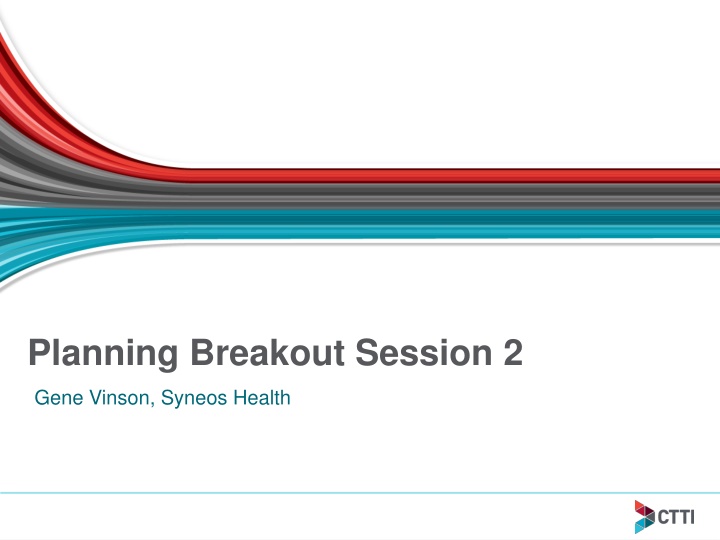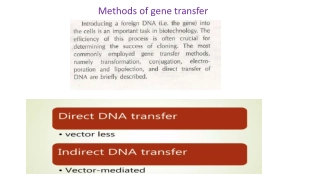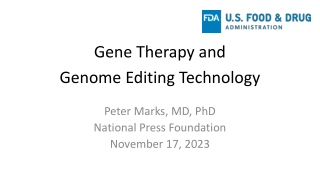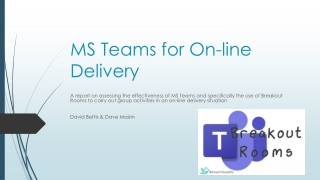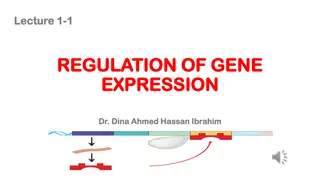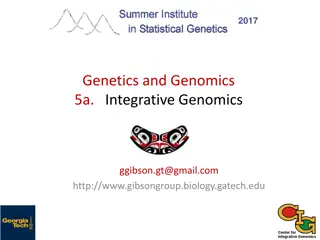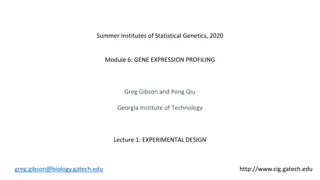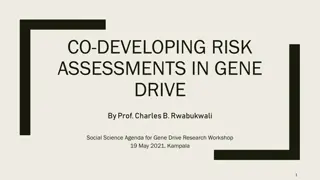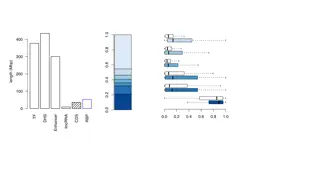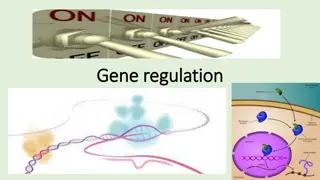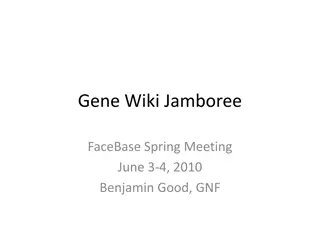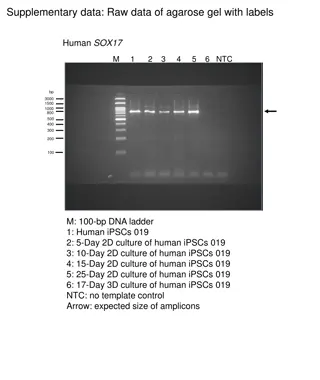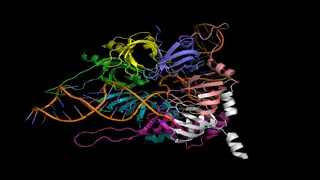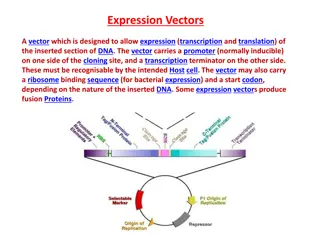Breakout Session 2 with Gene Vinson at Syneos Health: Prioritized Challenges & Strategies
Key design characteristics and vendor selection strategies discussed in Breakout Session 2 with Gene Vinson from Syneos Health. Dive into tools for trial design phase, protocol development, contract templates, consent frameworks, and more to streamline your planning process
Download Presentation

Please find below an Image/Link to download the presentation.
The content on the website is provided AS IS for your information and personal use only. It may not be sold, licensed, or shared on other websites without obtaining consent from the author.If you encounter any issues during the download, it is possible that the publisher has removed the file from their server.
You are allowed to download the files provided on this website for personal or commercial use, subject to the condition that they are used lawfully. All files are the property of their respective owners.
The content on the website is provided AS IS for your information and personal use only. It may not be sold, licensed, or shared on other websites without obtaining consent from the author.
E N D
Presentation Transcript
Planning Breakout Session 2 Gene Vinson, Syneos Health
Prioritized Challenges and Potential Strategies Building consensus around key design characteristics Selecting qualified vendors
Tool 1: Trial Design Phase Toolkit Protocol development map: Timeline of key decision making deliverables Subgroup meetings to draft the sections, main group meeting to assemble everything, individual team refinement meetings as necessary Examples of an design oversight plan plan that is unique to the planning stage Chart of key decision makers and stakeholders and how they contribute to the protocol s development
Tool 1: Trial Design Phase Toolkit Protocol Template Basket protocol framework Umbrella/platform protocol framework: master protocol and appendices or sub-studies Options for how to structure the master protocol given key disease characteristics, drug pipeline characteristics based on actual master protocol studies Choosing a master protocol subtype based on disease characteristics, drug pipeline characteristics Also details examples of implications of key decisions Example in adaptive trial you have to decide if you are going to be master protocol driven or appendix driven?
Tool 1: Trial Design Phase Toolkit Design Planning Toolkit: Contract templates: Understand the legal flow through across corporate, site, and vendor contracts Key contracting considerations: IP, data ownership, access to data across substudies, publication guidelines, extra samples Need to make sure each contract covers the study structure that was chosen
Tool 1: Design Phase Toolkit Consent framework Example a two-step consent process (consent to the master, consent to the sub-study) Training toolkit for sites this will cross over to execution Data management options Biospecimen collection and storage Safety management options
Tool 1 Data Needs Tool development process Reach out to existing trials: I-SPY LUNG-MAP NCI-MATCH DAIN-TU EPAD STAMPEDE FOCUS 4 Case research to draw out key teams Assembling existing presentations, literature to develop some specific tools
Tool 2: Vendor Assessment Toolkit Vendor communication guide: Support stakeholders with thinking through how to provide detailed, comprehensive information Make sure the vendor understand the open-ended nature of perpetual trials because it doesn t fit the traditional cost structure Vendor chart that describes specific key types of vendors that will fulfill critical functions within the trial Need to be particularly sensitive to nonprofit and academic centers that may have to engage more vendors and get multiple bids General list of considerations that may be unique for different types of master protocol studies
Tool 2: Vendor Assessment Toolkit Set of RFI/RFPs that ask a key set of questions: Ask potential vendors to provide details about specific challenges they anticipate given the trial design and how they have addressed those challenges in the past Anticipate multiple rounds of this process
THANK YOU. www.ctti-clinicaltrials.org
